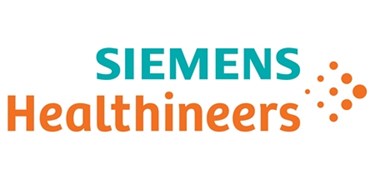FDA Clears Siemens' "Budget Friendly" MR System For Small to Medium-Sized Hospitals

Siemens Healthineers announced FDA approval for its new 1.5 Tesla MRI system, which uses an algorithm to decrease acquisition times, meaning the system experiences less motion interference and is less likely to require a rescan. The Magnetom Sempra MR system, called a “workhorse” system by senior executives, was developed in response to mounting reimbursement concerns and growing demand — especially among small to medium-sized hospitals and radiology practices — for improved cost efficiency.
Siemens Healthineers introduced the system in November at the Radiological Society of North America (RSNA) Annual Meeting in Chicago, demonstrating features that improve imaging consistency while keeping operating costs low. MRI software DotGO, included with the system, responds to the unique requirements of each case and patient, standardizing the tests and streamlining workflow, according to a press release.
Magnetom Sempra also achieves better visibility of soft tissues surrounding MR-safe metallic orthopedic implants, not possible with comparable systems. Also, innovations that reduce sound pressure during brain scans can improve patient comfort and reduce anxiety. Improved scanning efficiency means faster imaging acquisition, which can reduce necessity of a rescan for patients who move or have trouble holding their breath.
During a RSNA presentation, Daniel Fischer, MR global marketing manager for Siemens, asked the audience to hold their breath for 25 seconds to experience the difficulty of achieving high quality scans with traditional MR systems, reported DOTmed. In comparison, the Magnetom Sempra system can achieve the same image in 25 seconds of free breathing, said Fischer.
“Motion alone can cost $100,000 per year in terms of just rescans,” said Fischer at the presentation. “The Magnetom Sempra is what we consider our solution to really address financial uncertainty. We consider this to be our most cost effective 1.5T scanner.”
The system’s cost efficiency also is driven by Eco-Power technology, which monitors and controls helium cycle, and can reduce energy consumption by 30 percent. Fischer explained that the system would also come with a 2-year service contract, aimed at reducing system downtime and lost revenue.
“With Magnetom Sempra, we’re helping our customers keep pace with the market trend toward standardized healthcare, and to achieve better results at a lower cost of ownership,” said Christoph Zindel, senior VP of the MR business line at Siemens Healthineers, in a press release. Siemens Healthineers projected a second quarter launch for the system pending 510(k) FDA approval, which DOTmed reported this week.
Related, in January, Siemens Healthineers announced a partnership with Biogen that is aimed at developing new and improved MR technologies for multiple sclerosis, which can provide information about condition prognosis and the effectiveness of therapies. The proposed solution would be integrated directly into existing MR systems, increasing their therapeutic value without adding additional financial burden.
Siemens also has launched a research partnership with Northwell Health — based in New York — to develop solutions that can improve patient outcomes while reducing costs.
In an earnings call last year, Siemens CEO Joe Kaeser stated that the company may be looking to spin off Healthineers to shift corporate focus to industrial equipment, stipulating that the parent company would remain majority shareholder and would continue to develop the med tech company within the competitive industry.
